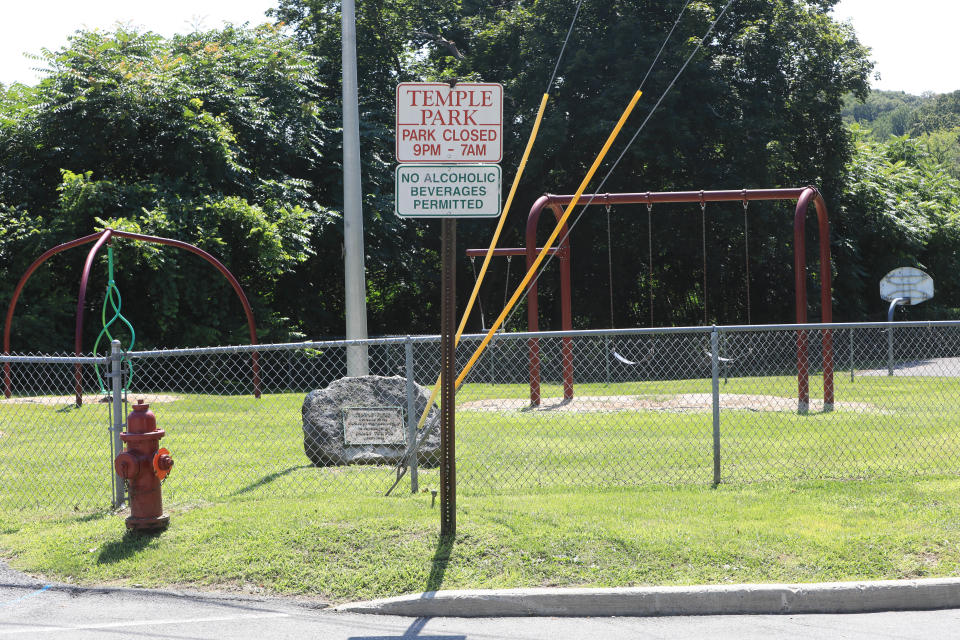EPA cracking down on max lead levels. What it means for this Wappingers Falls playground
Last summer, a small neighborhood park in the Village of Wappingers Falls was temporarily closed due to a reported claim that old cables hanging about the park had been contaminating the soil with lead.
The New York Department of Health and state Department of Environmental Conservation tested the soil at the time and found no evidence, based on nationally recommended screening levels, of elevated or widespread lead contamination in the areas that were sampled.
On Wednesday, the U.S. Environmental Protection Agency announced it was lowering those recommended screening levels for lead in soil at residential properties where children live and play. U.S. Rep. Pat Ryan in turn demanded Verizon and AT&T immediately disclose the locations of all lead cables in New York, and commit to robust lead testing at high risk sites across the state, including Temple Park in Wappingers Falls.

2023 Wappingers Falls playground soil testing results
The health department and the DEC took 25 soil samples at Temple Park and surrounding areas in July 2023. According to the EPA, the maximum acceptable limit for children's play areas was set at 400 parts per million. All but one of the samples collected at and near the park contained lead levels below 400 parts per million.
The EPA has now lowered the screening level for lead in soil to 200 ppm from 400 ppm.
Five of the test locations at Temple Park showed levels in the range of 224 ppm to 410 ppm, and four locations were in the range of 180 ppm and 199 ppm, according to the DOH's sampling report of lead in soil at Temple Park and adjacent areas of Dutchess Terrace and Market Street.
More: This New York playground's soil is being tested for lead contamination: What to know
At locations where there are other sources of lead exposure such as lead pipes, the EPA uses a screening standard of 100 ppm. Many of the village's residential properties are known to have exposure to lead through water pipes. Five of the soil results from the park fell in the range of 101 ppm and 161 ppm.
How EPA change impacts Temple Park
The DOH is reviewing what the updated guidance will mean for the park and for Dutchess County if any action will be taken.
By lowering the screening standard, the EPA expects to investigate more residential properties. However, the screening level alone will not trigger an investigation. The EPA uses other conditions such as risk factors and community input when deciding if a location needs to be cleaned under the Superfund law and Resource Conservation and Recovery Act.
“Yesterday’s EPA decision makes it even more clear: we need urgent action now,” Ryan said in a statement. “This is a serious and far reaching public health matter, and we need to mobilize a robust response at all levels of government. I’m calling on Verizon and AT&T to disclose the locations of these toxic lead cables and commit to robust testing so we can fix this problem once and for all.”
Ryan said Verizon and AT&T have refused multiple requests to identify locations where there are lead cables — his office said such cables have been found in Middletown, New Windsor and Poughkeepsie.
The Village of Wappingers Falls was notified by Ryan's office of the change to the screening standards. No action has been taken yet, according to John Karge, the village clerk.
Saba Ali: Sali1@poughkeepsiejournal.com: 845-451-4518
This article originally appeared on Poughkeepsie Journal: EPA lowers max soil lead level. What does it mean for Temple Park?

